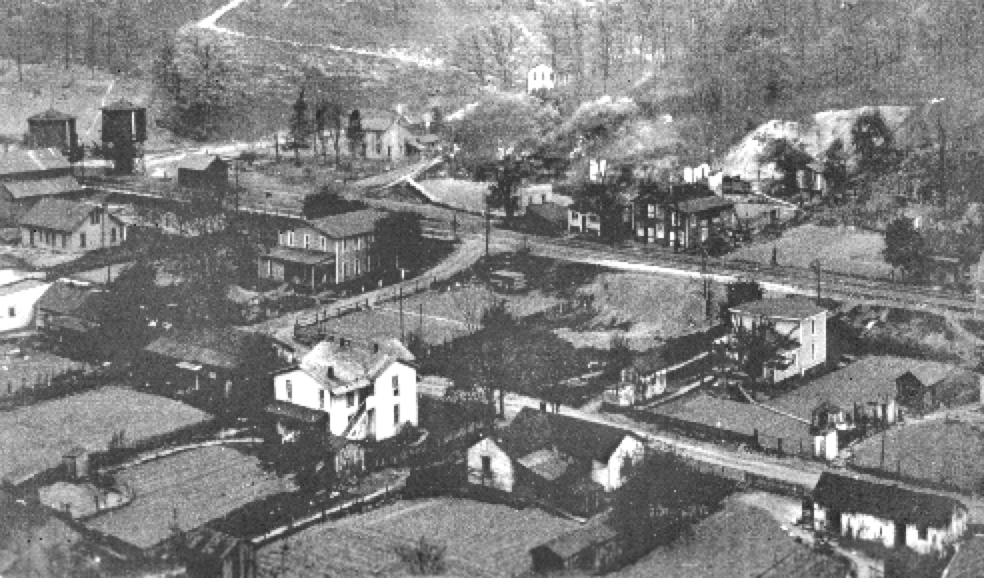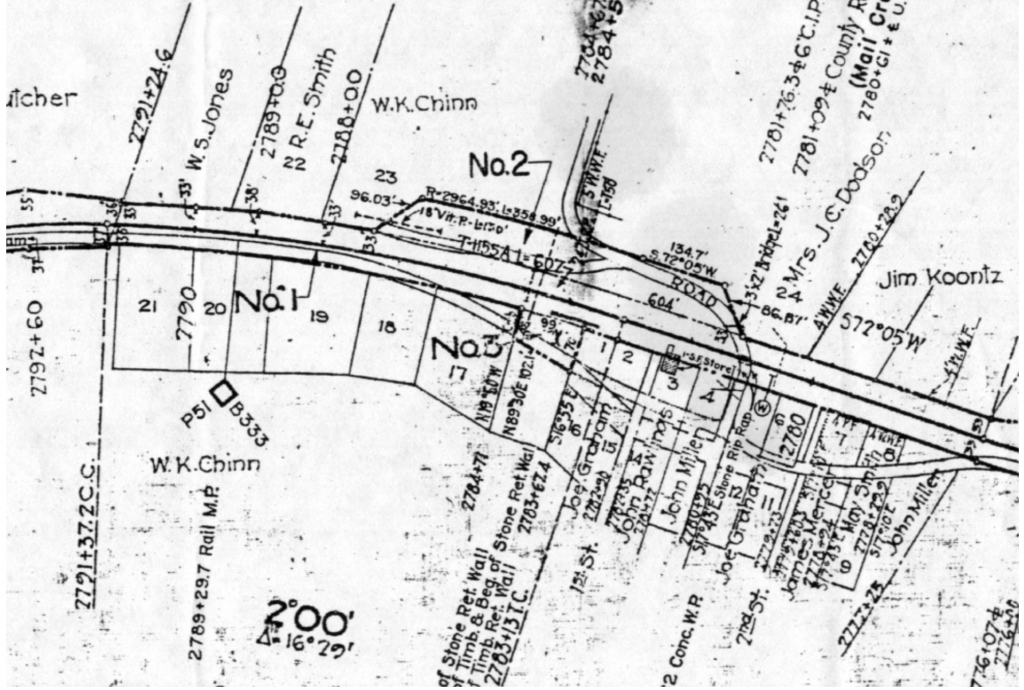DODDRIDGE COUNTY’S
DAYS OF DISCONTENT, 100 YRS. AGO
PART 3
THE IMPEACHMENT
From the last two articles in this series, we learned that a road bond was issued which amounted to $200,000 meant to improve and repair the roads listed last week. We also learned that petitioners, A.C. Stickel, Eli Nutter, D.C. Snider, Henry Ash, A.W. Robinson, and G.B. Vanscoy, claimed that the work project was not completed and that much of the work that was completed was substandard and that 85% of the blocks used were already broken. They claimed in the petition that road work done on portions of Rock Run under the first contract of 1916 were reported as being performed again under the contract of 1918.
To this, Commissioner Graham stated that the work done on Rock Run under the contract of 1918 was not done in the previous one. Under the second contract, Commissioner Graham explained, there was heavy grading and additional grading in order to comply with the WV State Mandate for Class A roads. To summarize, a section of Rock Run was upgraded under the first contract and that heavier grading was done in the previous sections along with different sections that were upgraded under the 2nd contract, making no conflict between the two contracts.
The Petitioners also claimed that Commissioner Graham purchased a used Ford car for $251 at public sale. The car was said to be in poor running condition and that after the county agricultural agent used it without approval, it never ran reliably again. Then, the County purchased a second Ford car for $705.49. He went on to say that because the work being done was in the cold season of the year, they also purchased two lap robes to be used in the cars for warmth.
Although the Petitioners claimed that the cars were utilized for personal use on occasion, Commissioner Graham stated that both cars were used for County purposes only and were necessary for the supervision of the work being done by the Court throughout the County.
Yet another claim in the petition was that goods were purchased from a mercantile store owned by Commissioner Graham in Central Station. To this Graham said that while goods were purchased at his store during this time. It was without his knowledge and was purchased at prices as favorable as they could have been purchased anywhere else in the county and in some cases, more favorable prices. It was his belief that this was absolutely legal and in compliance with the rules of the State of WV.
Then, there was the issue of the allegation relative to the allowance and payment to Sheriff Samuel L. Ford in the amount of five hundred ($500) dollars for his services as sealer of weights and measures. Commissioner Graham said that when the allowances were made to Sheriff Ford, for the year 1917, it was contemplated that he might be required to perform certain duties as sealer of weights and measures for Doddridge County. It was expressly stipulated that the meager allowance for that year were not to include compensation for such services. It was understood that if such services should be rendered, proper compensation would then be allowed at that time.
Commissioner Graham went on to say that Sheriff Ford furnished a team of two horses and a wagon, one employee and his own services in traveling over the county of Doddridge in the discharge of the duties of deputy sealer of weights and measures, and carried with him materials weighing about one thousand pounds for a period of thirty-five days. Commissioner Graham reminded the public that in addition, Sheriff Ford spent a considerable amount of time in the town of West Union and in the smaller towns which were accessible by rail in the discharge of these duties. He added that the payment for these services were meager in consideration of the services rendered and the expenditures incurred by him.
In an effort to prove his case, he said that it was promptly approved by the WV State Tax Commissioner and has only been questioned by those who had signed ownership of the petition.
That brings us to the items regarding the old Doddridge County Poor Farm, later known as Britton Rest Home. The petitioners claimed that Commissioner Graham signed off on the purchase of a bull calf and a sow pig in the amount of $130, indicating the price might be too high. To this Commissioner Graham said that Mr. Greathouse and Mr. Williams were the practical farmers, and he was not a farmer. He said that he would leave that discussion to them.
I answer to the petitioner’s complaint regarding the timbering of the Doddridge County Poor Farm, Commissioner Graham explained that much of the timber covering the three hundred and seventy-five (375) acres was mature timber and would not increase in value, but rather would continue to decrease.
The stand of timber was sold to George Wanstreet for the price of $5 a thousand feet, at the suggestion of Mr. Greathouse, not Mr. Graham. It was not until after the sale that Commissioner Graham learned George Wanstreet sold one-half undivided interest of that timber to E. H. Bee for the same price that Wanstreet had purchased it from the County.
Commissioner Graham stated that at no point did he ever have any direct or indirect interest in the timber, and that he believed the County still benefited from the sale of that timber.
I n closing, Commissioner Joseph J Graham reiterated that he categorically denied each and every claim in the petition brought against him by A. C. Stickel, Eli Nutter, D. C. Snider, Henry Ash, a. W. Robinson, and G. B. Vanscoy.
The Impeachment
On December 15, 1920, the townspeople were abuzz with excitement. It was trial day and the decision to impeach or not to impeach the Commissioner was at hand. The courtroom was packed as Judge Morris gaveled in and the trial began.
Commission President, Joseph J. Graham, and petitioners, A. C. Stickel, Eli Nutter, D. C. Snider, Henry Ash, A. W. Robinson, and G. B. Vanscoy were there with their respective attorneys at their side. Judge Homer B. Woods should have heard the case, but for reasons not stated did not. Honorable P. D. Morris of New Martinsville took his place to decide their case.
After the conclusion of the presentation of the evidence, and the time that was taken for Judge Morris to consider all the evidence presented. He severely rebuked Graham when he said that Commissioner President Joseph Johnson Graham was ignorant of his acts.
The Judge continued, “Officers must be judged by their acts, and not by their pleas of ignorance.”
He ended his opinion with the following two paragraphs:
“The time has evidently come in this State when county officers must know their duties and do them. I am, therefore, of the opinion, to sustain sections six, seven, eight, nine, and ten of the petitioner’s petition, and that said Joseph J. Graham be removed as President and Commissioner of the County Court of Doddridge County in accordance with provisions of Section 7, Chapter 7, of the Code of West Virginia, and Chapter 94 of the Acts of 1919.”
A special session of the County Court had been called for the following Monday to fill the position on the Court in the place of Joseph J Graham. (Unfortunately, that newspaper is missing, and I cannot include the replacement until such time as I can have access to research in the Circuit Clerk’s Office.)
In April of the following year, Joseph J. Graham was before the court again with two misdemeanor cases. (Again, I could not find what the misdemeanors were since I cannot go into the courthouse for research. Perhaps when the pandemic is over, I can discover the rest of the story.)
Who is right and who is wrong? It was an election year just as it is an election year now. Did that have anything to do with the actions of those who authored the petition? Was Graham a dishonest individual trying to benefit personally from his position as commissioner, or was he simply a
young man who meant to do well without a proper understanding of how the government works?
Were A. C. Stickel and the other petitioners more experienced individuals simply looking out for the taxpayers of the county, or were they attempting to put a negative image to this well-respected young man, as Graham stated? History leaves us with no answers to these questions.
We do know that Joseph J. Graham was 33 yrs. old at the time of the impeachment. We do know that five years after his impeachment, he was asked to oversee the roadwork that was to be done in the Central Station area. The newspapers article said that he was a good man for the job, judging the future by his past record as a “roadman.” He did not harbor hard feelings and accepted the responsibility of making sure the work done under his oversight was quality work. There doesn’t appear to have been any complaints, so we can only assume that the work was satisfactory. Six years after the impeachment, A. C. Stickel ran as candidate for Commissioner of the Court of Doddridge County.
About Commissioner Graham
Joseph Johnson Graham was born on September 25, 1887 at Cornwallis, Ritchie County. He married Ella Imogene Bee (daughter of McClellan “Mack” and Nellie McCally Bee) on September 9, 1911 in Wood County.
After this public ordeal which divided the county to an enormous degree ended, Graham went on to have a successful mercantile business in Central Station. He also did much in the county to help it prosper and was respected highly for it.
He owned the gas station on the west side of West Union which he rented to Rev. Robert Neely in 1962. Unfortunately, it was torn down when the bridge collapsed not long after. I covered that story in a previous article.
I was told by multiple people that Joseph J. and Ella Bee Graham did not have any children. Most did not know that he and his wife did have child early in their marriage. It died in infancy. They were never again blessed with the gift of a new life.
Joseph J Graham died on February 8, 1963 in Clarksburg, WV. He was 76 years old.
God Bless and Stay Well
Patricia Richards Harris


Photo 1- Central Station early 1900s
Photo 2 – sketch of layout of Central Station identifying Graham’s store.

